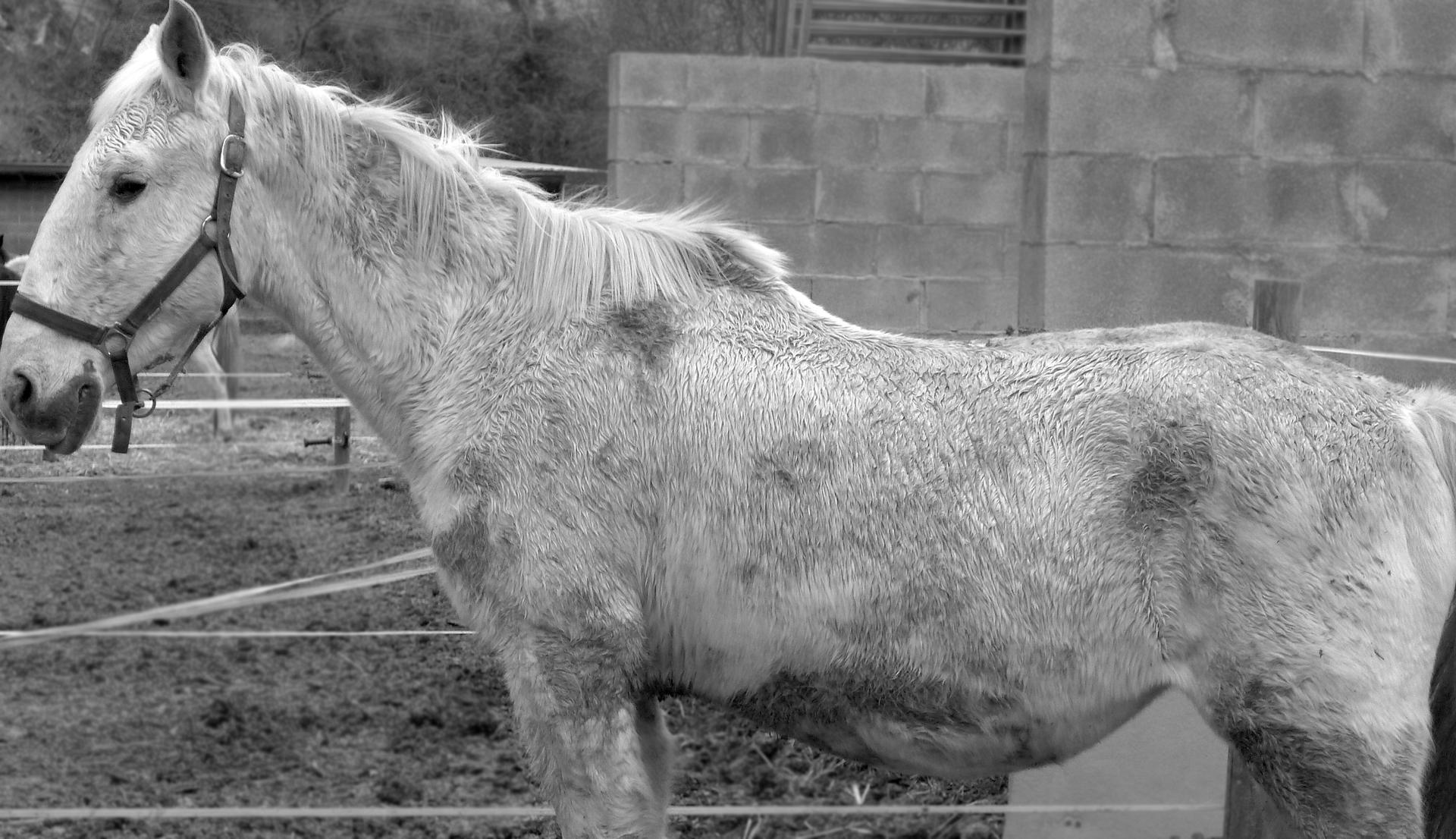Spain’s weak economy leads families to abandon domesticated horses to die
This mare, Katana, was found tethered to a tree in a Barcelona park, nearly dead. People can abandon horses so brazenly, Aldo Alcaraz says, because they’re not committing a crime. (Photo by Gerry Hadden.)
Spain now says its economy will shrink more than expected this year, as banks struggle, the government slashes spending, and consumers spend less and less, especially on luxury items.
One example: horses.
During Spain’s boom years of the 1990s and 2000s, lots of people bought and bred horses. They were a status symbol, and fun to ride.
But with everyone cutting back, the horses are often the first to go. The problem, is where do they go?
At Miguel Reverte’s riding school and stables outside Barcelona, young students lead their horses back to their stalls after class. About a third of Reverte’s 100 stalls stand empty. He says there used to be a waiting list to board horses here.
“Fifteen years ago, people lived well, had good paying jobs,” he said. “So people bred and bought luxury items like horses. Now they can’t get rid of them fast enough.”
Some horses are just left at stables. Those would be the luckier ones. They have food, shelter, visits from the vet. Across Spain, thousands of cash strapped horse owners are just leaving their animals — anywhere.
“They leave them to die,” said Aldo Alcaraz, a young Spaniard who takes in abandoned horses. “Desperate owners will ditch them in some fenced off lot in an abandoned building or some old, unused factory. You can be sure it’ll be somewhere where there’s no food or water.”
The Alcaraz family horse sanctuary, about an hour from Barcelona, is overflowing. As are many such refuges across Spain.
On a recent day, Alcaraz’s boney, scarred and limping horses feed quietly on a pile of hay in the main corral. Alcaraz says they try to find new homes for these animals, but most never leave. That means they can’t take new horses in.
Their stories are pretty horrific.
There’s a kids’ pony named Samba that was found wandering along a highway. Katana, a pale, broken, shell of a horse, was found near death tied to a tree in a public park in Barcelona.
Alcaraz says people ditch their animals without concern for the consequences, or for the trouble they might get in. Horse abandonment isn’t a crime in Spain.
To be fair, many people try to sell their animals first. But in today’s market, it’s a long shot.
Spain’s biggest horse trader, a guy named Jorge Montiel, in Barcelona, says top-shelf show and race horses always sell. But your typical Spanish riding horse?
For the last year, he says, there’s been no demand at all.
“People are trying to just give them to me,” he says. “For free. Anything to keep them from the freezers.”
By the freezers, Montiel means the slaughterhouses. Horse slaughter increased by about 30 percent last year.
Most of the meat was exported — some of it possibly ending up in processed foods, part of a continent-wide scandal. But a typical riding horse isn’t fit for consumption, not even as animal feed, because it’s been vaccinated.
So families who can no longer afford the $400-a-month upkeep costs, and who can’t sell their horse or find a sanctuary, just quietly slip the reins off.
Experts say an abandoned, domesticated horse can typically survive for about six months in the wild, before starving or dying of disease.
We want to hear your feedback so we can keep improving our website, theworld.org. Please fill out this quick survey and let us know your thoughts (your answers will be anonymous). Thanks for your time!
